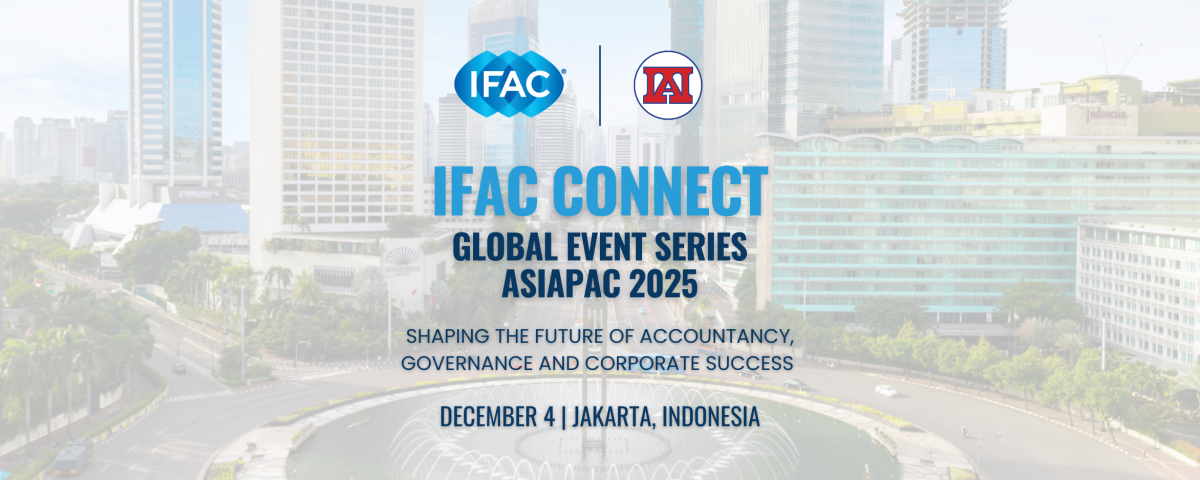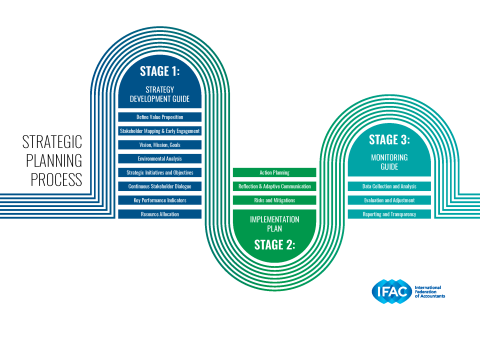IFAC Connect AsiaPac 2025 Brings Together 250+ Regional Accountancy Leaders in Jakarta
The International Federation of Accountants (IFAC) opens IFAC Connect AsiaPac 2025 in Jakarta tomorrow, an invitation-only gathering bringing together more than 250 leaders shaping the future of the accountancy profession across the Asia-Pacific region and beyond. Hosted in partnership with the Institute of Indonesia Chartered Accountants (IAI), the event takes place alongside IAI’s 68th Anniversary celebration at the Fairmont Hotel Jakarta.

IFAC Connect convenes senior representatives from professional accountancy organizations, global and regional standard setters, regulators, major firms, and investor communities to confront the forces reshaping trust, sustainability, and governance in a period of rapid global disruption.
The agenda includes a keynote address from Ibu Sophia Wattomena, Chair of the Audit Board and Member of the Board of the Commissioner, Indonesia Financial Services Authority (OJK), followed by a discussion between IFAC Chief Executive Officer Lee White and leaders from IFAC Network Partners CAPA and AFA on shared regional priorities and emerging opportunities for collaboration.
Sessions throughout the day will explore early lessons from the global rollout of enhanced corporate reporting, the modernization of qualification pathways, the future of talent pipelines, the expanding leadership of women in the profession, and the profession’s emerging role in AI assurance and ethical oversight. A conversation on trust and tax will draw on insights from IFAC, OECD, CAANZ, and ACCA, reflecting growing expectations for transparency in global tax systems.
IFAC Chief Executive Officer Lee White said: “The global accountancy profession should continue leading, proactively and decisively, helping shape resilient financial systems by bringing trust to reported information and preparing talent for a world defined by a rapid pace of digital and geopolitical disruption. IFAC Connect AsiaPac brings together the Asia-Pacific region, which is swiftly grappling with the global economic transformation, to confront these challenges with clarity, collaboration, and shared purpose.”
IAI President Ardan Adiperdana said: “This gathering reflects Indonesia’s growing influence and the profession’s commitment to strengthening transparency, accountability, and sustainable growth across the region. As we mark IAI’s 68th Anniversary, we are honored to welcome global leaders whose collaboration will help chart the profession’s path forward.”
IFAC Connect AsiaPac 2025 discussions will culminate in closing reflections from regional leaders on how collective action can strengthen the profession’s relevance and resilience in the years ahead.
Following Nairobi, Riyadh, and Mexico City, this is the final IFAC Connect event of the year that will build the foundation of a 2026 agenda with bold leadership.
About IFAC
IFAC, by connecting and uniting its members, makes the accountancy profession truly global.
IFAC member organizations are champions of integrity and professional quality, and proudly carry their membership as a badge of international recognition.
IFAC and its members work together to shape the future of the profession through learning, innovation, a collective voice, and commitment to the public interest.






